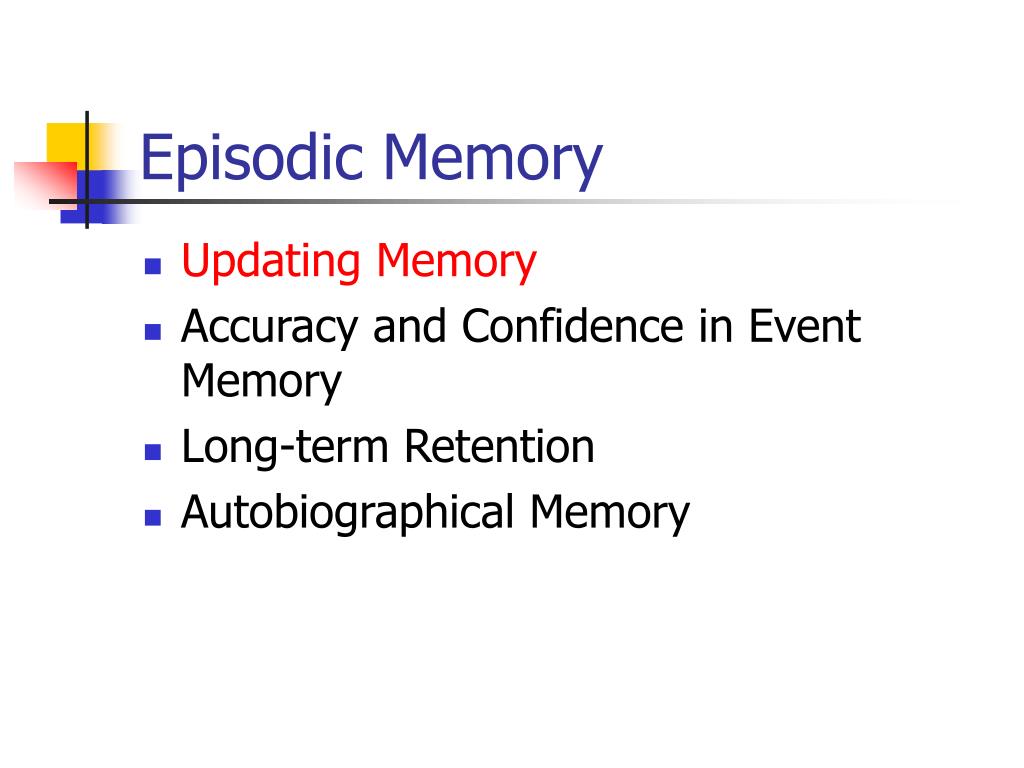

Prospective representation of navigational goals in the human hippocampus. The temporal signature of memories: identification of a general mechanism for dynamic memory replay in humans.


Temporal structure in associative retrieval. Kurth-Nelson, Z., Barnes, G., Sejdinovic, D., Dolan, R. Memory’s echo: vivid remembering reactivates sensory-specific cortex. Preference by association: how memory mechanisms in the hippocampus bias decisions. Evidence for holistic episodic recollection via hippocampal pattern completion. Category-specific cortical activity precedes retrieval during memory search. Hippocampal replay in the awake state: a potential substrate for memory consolidation and retrieval. The role of hippocampal replay in memory and planning. Awake hippocampal sharp-wave ripples support spatial memory. Hippocampal place-cell sequences depict future paths to remembered goals. The role of the hippocampus in navigation is memory. Memory, navigation and theta rhythm in the hippocampal–entorhinal system. From Conditioning to Conscious Recollection: Memory Systems of the Brain (Oxford Univ. Our results demonstrate that memory-mediated decisions are supported by a rapid replay mechanism that can flexibly shift in direction in response to task goals.Įichenbaum, H. This sequential replay was weaker in very-high-performing participants, in whom instead we found evidence for simultaneous clustered reactivation. The direction of replay supporting retrieval, either backward or forward, depended on whether the task goal was to retrieve elements of an episode that followed or preceded, respectively, a retrieval cue. By decoding individual episode elements, we found that trial-by-trial successful retrieval was supported by the sequential replay of episode elements, with a temporal compression factor of >60. One day later, they engaged in cued retrieval of these episodes while undergoing magnetoencephalography. We studied participants who first experienced, without repetition, unique multicomponent 40–80-s episodes. The fine-grained neurophysiological mechanisms that support such memory retrieval are largely unknown. Retrieval of everyday experiences is fundamental for informing our future decisions.


 0 kommentar(er)
0 kommentar(er)
